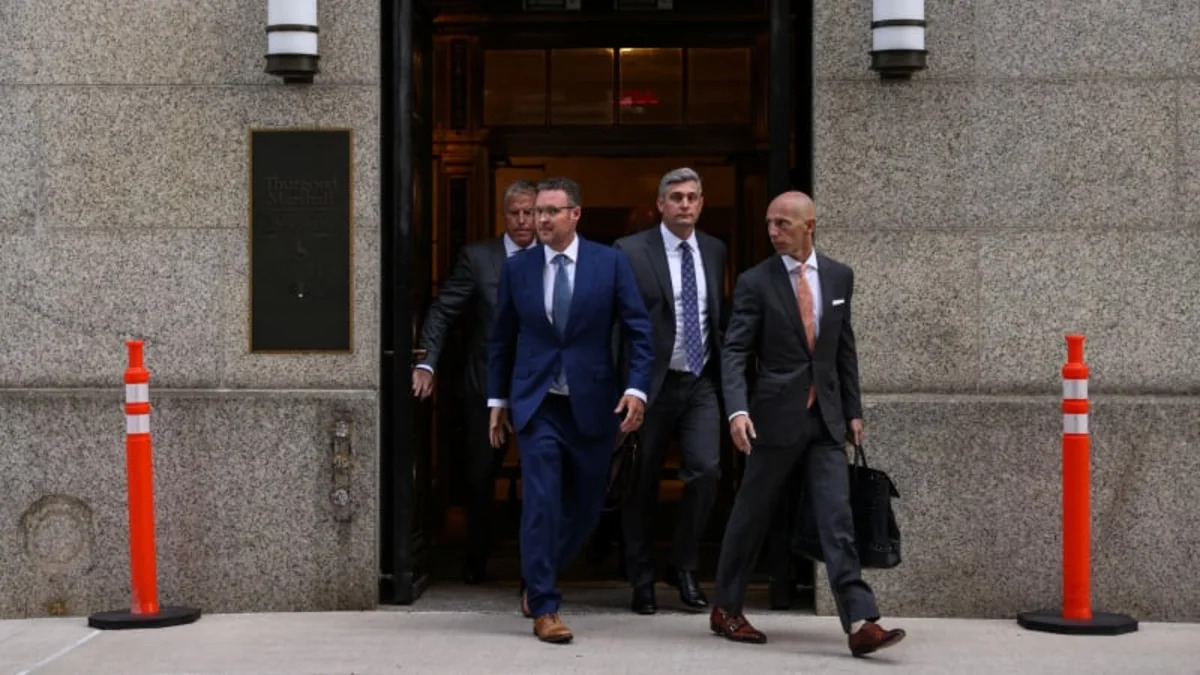\Nikola Corp. founder and former Chief Executive Officer Trevor Milton was ordered to spend four years behind bars for lying to shareholders about the electric-truck maker’s progress.
Milton, 41, was sentenced Monday by US District Judge Edgardo Ramos in Manhattan, more than a year after a jury convicted him of securities fraud and wire fraud for misrepresenting key details about the development of Nikola’s products and technology. He was also ordered to pay a $1 million fine.
Prosecutors had sought a sentence “in line” with the 11 years recommended by probation officials, saying a lengthy term of incarceration was needed both to punish Milton and deter other corporate executives from similar misconduct. The government said Milton’s fraud cost investors $660 million.
A teary Milton had asked the judge to sentence him only to probation, saying he didn’t intend to mislead investors and made mistakes due to a lack of experience.
“I was not a very seasoned CEO,” he said.
Ramos allowed Milton to remain free on bail while he appealed his conviction. Milton said after the sentencing that he believes the verdict will be overturned.
The jury took only a few hours to convict Milton in October 2022 after a two-month trial featuring testimony from more than a dozen government witnesses and evidence including an infamous viral video that appeared to show a Nikola semi prototype traveling under its own power. It was actually rolling downhill thanks to gravity.
Milton’s case was unusual among white-collar fraud cases because he was accused of making misrepresentations through public channels like YouTube, rather than in financial statements or other corporate filings.
“You used your considerable social media talents to tout your company in a way that was materially false,” Ramos said at the sentencing. “What you said over and over in multiple media outlets was wrong and it was materially wrong.”
Defense lawyer Marc Mukasey said Milton’s communications were driven by his “true belief” in his company rather than greed. “It was not a nefarious attempt to take advantage of people,” Mukasey said. “It wasn’t trained on or aimed at particular people.”
But prosecutor Joshua Podolsky said it was “beside the point” whether Milton wanted to harm investors. “He ultimately didn’t care” if he did, Podolsky said.
Nikola drew investors eager to find the next Tesla Inc. after it made its market debut through a June 2020 blank-check merger. For a time, Nikola had a higher market capitalization than Ford Motor Co., giving Milton a net worth of $4 billion.
But soon after Nikola began trading, Bloomberg reported that Milton had greatly exaggerated the capabilities of one of its first prototypes, the Nikola One, describing it as a fully functioning vehicle even though the truck couldn’t be driven at the time because of missing parts. Three months later, short seller Hindenberg Research published a report accusing the company of deception and lying about its technology, sending the shares plummeting.
Milton stepped down as executive chairman in September 2020. He was charged by federal prosecutors the following July.
His conviction was a victory for federal prosecutors in Manhattan, who have vowed to crack down on corporate wrongdoing, and his sentencing comes just over a month after FTX co-founder Sam Bankman-Fried was found guilty of defrauding investors in the cryptocurrency exchange.
Milton previously asked Ramos to throw out his conviction, arguing that some of the judge’s instructions to the jury were wrong and that one juror lied to get on the panel. The motion was rejected in August.
He remains Nikola’s second-biggest shareholder and earlier this year called for leadership changes at the company, urging investors to reject company-backed proposals to reelect directors and allow new shares to be issued.
The stock traded below $1 a share for most of April and May, raising threats of delisting. While shares rebounded to more than $3 in August, they have since fallen back below $1, far below a closing peak of almost $80 in mid-2020.
The case is US v. Milton, 21-cr-478, US District Court, Southern District of New York (Manhattan).


Sign in to post
Please sign in to leave a comment.
Continue